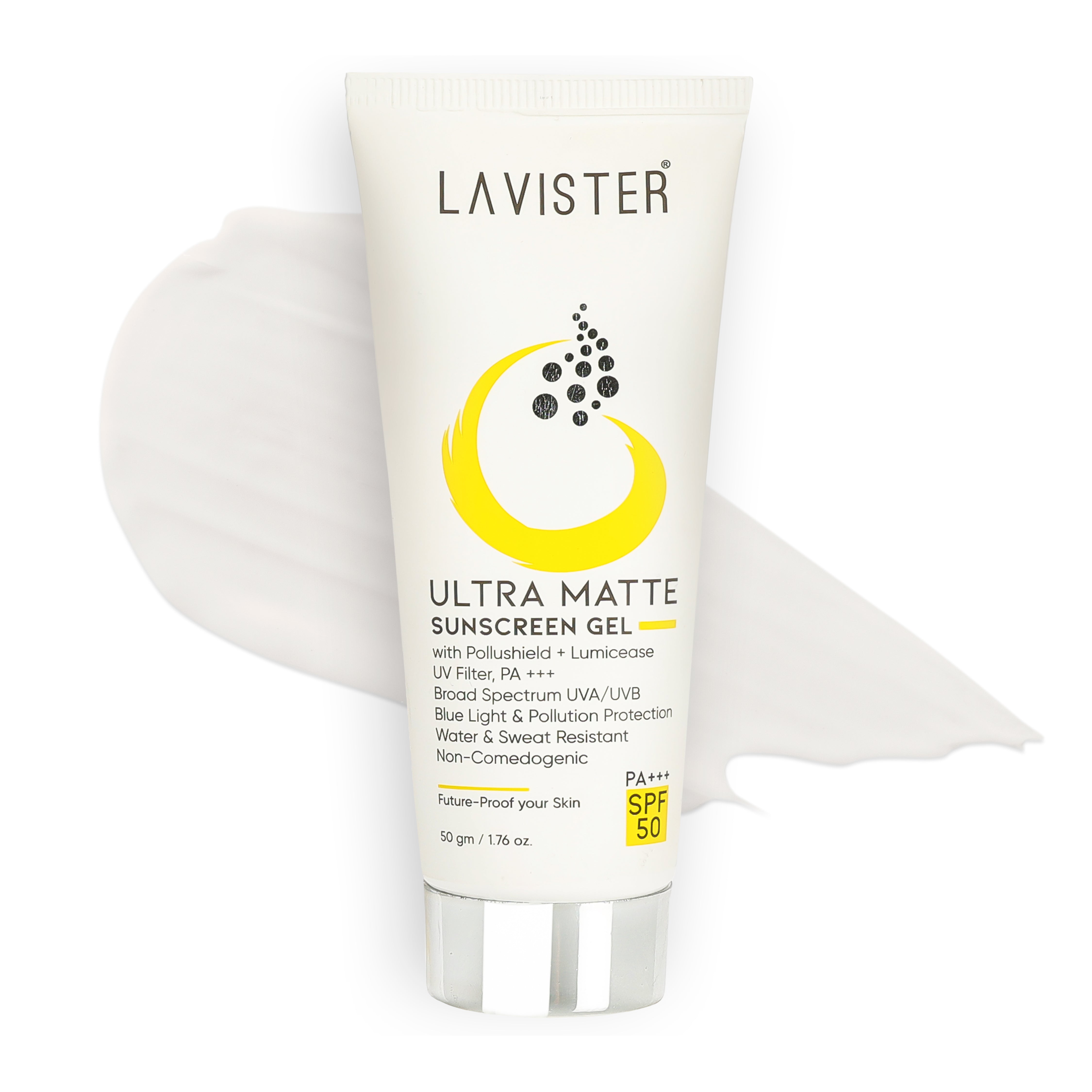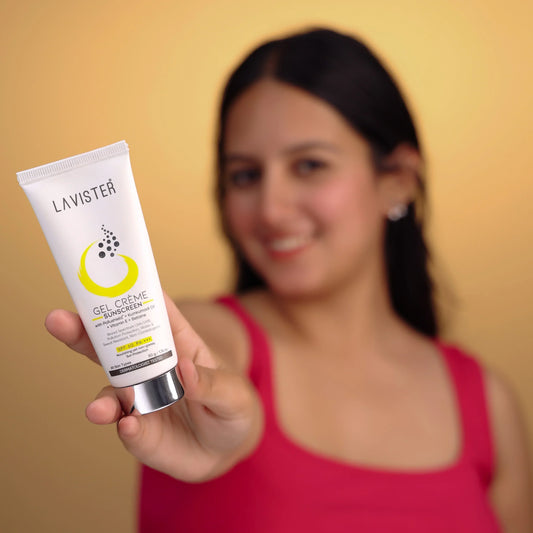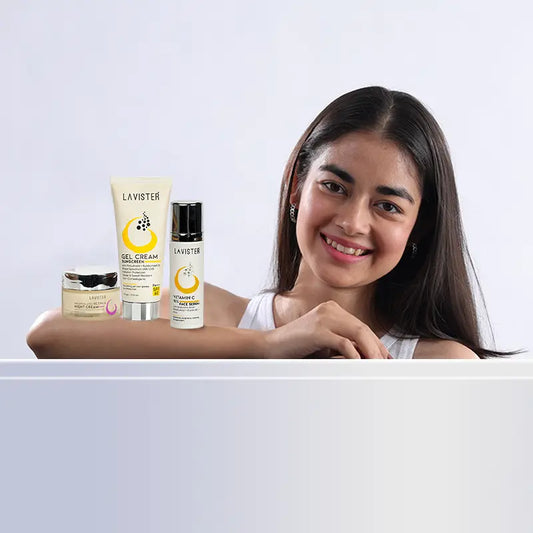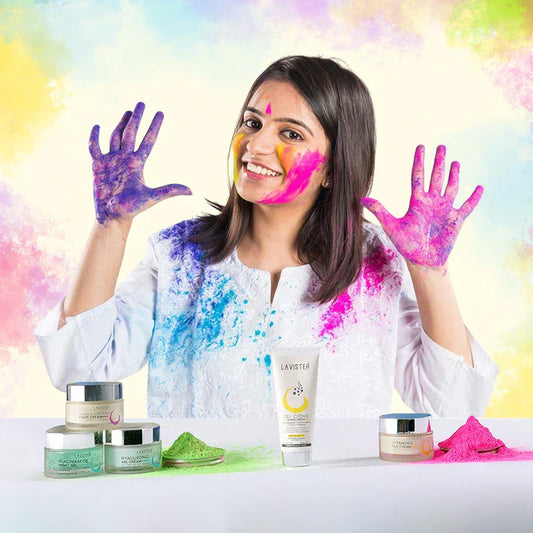Sunscreen 101: Everything You Need to Know About SPF
Using all products to care for your skin but still unable to get the desired flawless glow? You may be missing one very important skin care essential: sunscreen. Whether sunbathing or just stepping out of the home for small work, you should never forget sunscreen before stepping out.
Choosing the appropriate sunscreen can be tiresome, as choosing one from a wide range of products is not child’s play. This guide shares everything you need to know about sunscreen, from its definition to how to choose the right one based on your lack of knowledge about SPF sunscreen. Read now to learn how to keep your skin safe and glowing in summer and winter!
What is SPF?
SPF, or Sun Protection Factor, is the ratio between the duration required for redness to develop on sunscreen-treated skin and that needed for similar skin without sunscreen. For example, while you usually burn in 10 minutes, an SPF 30 sunscreen would allow about 300 minutes of sun exposure without burning. The simple general rule is that the higher the SPF, the more protection it provides.
What Does the PA Rating Mean?
PA rating refers to the Protection Grade of UVA, which shows the protection power of sunscreen against UVA rays. These rays cause deep skin damage and penetrate the skin deeper than UVB rays. The PA rating is marked with an additional sign in the following sequence: PA+, PA++, PA+++, etc. The number of additional signs denotes the protection level; the more signs, the greater the protection.
Who Needs Sunscreen?
Sunscreens are for everyone—yes, everyone! Whether you are a child or a grown, dark-skinned or white-skinned, sunscreens become an absolute necessity in August or December.
Outdoor people
Sunscreen is basic for outdoor activities such as hiking, biking, or running. It protects the skin from UV rays, which can damage it indoors or behind clouds.
People with sensitive skin
Someone with sensitive skin is likely to experience more irritation from UV rays. Sunscreen would prevent that red, raw, burning sensation.
People with a family history of skin problems
If you have a history of pigmentation, dark spots, or even skin conditions, daily use of sunscreen protects you by safeguarding your skin from damage.
People who do not want to look old
Ultraviolet rays cause signs of ageing before time, like wrinkles, fine lines, and sagging skin. Using sunscreen will help maintain a youthful look on the skin for a longer with no sun damage.
Benefits of SPF
SPF is one of the most critical elements in skin protection. The following are some of the most common benefits a person gets with daily application of sunscreen:
Prevents Sunburn
Sunscreen keeps away sunburns. As the UVB rays are directly related to sunburns, the sunscreen will prevent them from reaching the skin.
Lower Risk of Skin Cancer
When UV rays are exposed to the skin for longer periods, they can cause skin cancer. Regular use of sunscreen reduces the risk of developing skin cancer, whether melanoma or non-melanoma.
Prevents Ageing Too Soon
Those harsh sun rays are mainly responsible for fine lines, wrinkles, and age spots. Sunscreen acts as a protective screen to shield the skin against UV rays that tend to break down collagen.
It Acts Against Hyper-Pigmentation
Sunscreen might help prevent dark spots or pigmentation from worsening or developing. Sun exposure is a considerable cause of pigmentation problems; sunscreen can minimise this risk.
Maintains an Even Skin Tone
Sunscreen protects the skin from uneven skin tones and discoloured areas caused by UV rays. By using sunscreen, you are helping your skin maintain its natural radiance and smooth texture.
Choose the Right Type of Sunscreen
Consider the following factors to purchase the ideal sunscreen:
· A sunscreen for everyday use should have a minimum SPF of 30.
· Choose a sunscreen which offers broad-spectrum protection against both UVA and UVB radiation.
· Identify your skin type. Identify if your skin is oily, dry, normal or sensitive.
· Look for water-resistant sunscreen, perfect for sunny and sweaty weather.
· Look for sunscreens that contain added benefits for the skin, such as vitamin E or antioxidants, for extra nourishment.
· Choose a sunscreen that fits your lifestyle. Choose whether you need a lightweight gel or a cream for your face or body.
Do You Need Sunscreen on a Cloudy Day?
Yes!
Up to 80% of the sun's UV rays can still reach your skin on cloudy days. These rays penetrate through the clouds and may cause damage, so it's very important to wear sunscreen every day, regardless of the weather. UV rays reflect off surfaces such as water, snow, or concrete, meaning your risk isn't reduced when you're not directly under the sun. Make sunscreen a habit, rain or shine, to keep your skin safe all year round.
Conclusion
From the facts mentioned above, sunscreen is necessary for anyone wanting to save his or her skin from harmful rays from the sun. Whether one wants to prevent sunlight exposure, premature ageing, or even skin cancer, the right sunscreen makes all the difference.
If you are looking for a sunscreen that prioritises protecting your skin from harmful sun rays, try Lavister Gel Cream Sunscreen or Ultra Matte Sunscreen Gel for effective, broad-spectrum protection against risky UVA/UVB rays. These sunscreens are specially crafted to keep your skin fresh and shielded from harmful elements. Start taking sun protection seriously today, and your future self will thank you!
Keep glowing and safe under the sun!
Protect Your Skin with the Power of Sunscreen

Whether you need a matte finish or a creamy texture, Lavister has the perfect sunscreen for daily protection. Lavister's Ultra Matte Sunscreen Gel and Gel Cream Sunscreen provide superior protection against harmful UV rays. Their lightweight, non-greasy formulas shield your skin from UVA and UVB damage while keeping it hydrated and shine-free. Stay safe under the sun with Lavister’s expert sun care solutions!
Sign up to our newsletter to get the best deals and latest product updates.
Trending Blogs
-

Natural Ingredients in Skincare: What to Look For and Why They Matter
In today’s skincare world, the emphasis on using na...
Read More





